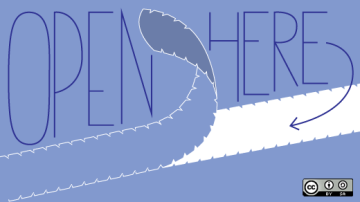Kendell Clark is an open source advocate and Fedora user who has been using Gnu/Linux since August 2011. I love my wife melisa, my dog tigger, and gnu/linux, especially if has anything to do with accessibility
Kendell Clark
Authored Comments
thanks for all the positive comments. The copyeditors hear cut out some of the technical detail which really goes into detail about how daisy works. If anyone's interested,I can send them the original open document file by email which has them. In particular, this file has details on the hybrid format the nls (national library service) hear in the US uses for it's talking books. It's a sort of mix of daisy 3 and some proprietary encryption scheme which uses the aes 256 bit algorithm to encrypt the audio which is in amr wb format so that only "authorised" players can decode them. I've always wanted an app for linux that could play these books but what I want most is for linux to be able to properly identify a daisy book when you run across it in your file manager. A daisy book is a folder full of files, so it shouldn't be too hard. Is anyone interested in helping me do that?







I couldn't agree more about formats and standards being open. Daisy is semi open I suppose, although they actively encourage patented audio formats. The only audio formats they support are amrwb for the nls's digital books, and mp3 or wave for daisy 2 and daisy 3 audio books. I remember reading some of the standards documents for daisy 2 and daisy 3, and in both cases they had people from both the riaa and mpaa helping, so what else can you expect. I can't wait for blind sites such as bookshare, rfb&d, now learning ally, etc to switch over to epub. The organization behind daisy has switched over to supporting it. But they'll probably take their time because of all the windows and mac users. What I mean by this is that there is more software to read daisy books on those platforms than epub and other open formats. Calibre isn't accessible enough on anything but linux to be usable. Despite this, daisy has outlived itself. It's a convoluted format that only windows and mac and now android have ever supported well. Although this isn't really the daisy consortium's fault. There have been programs in linux started to handle the format but they all got abandoned at some point or another.